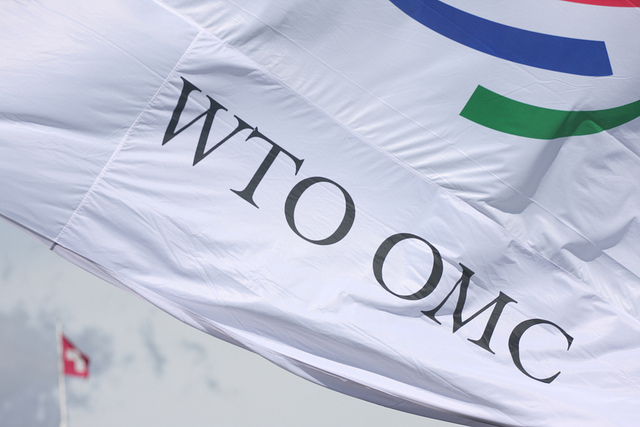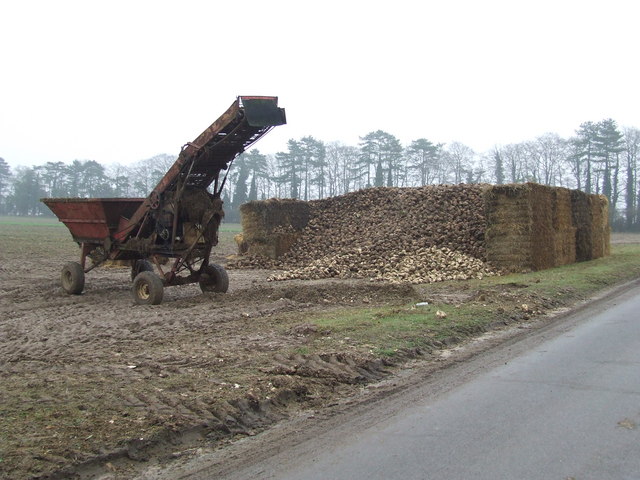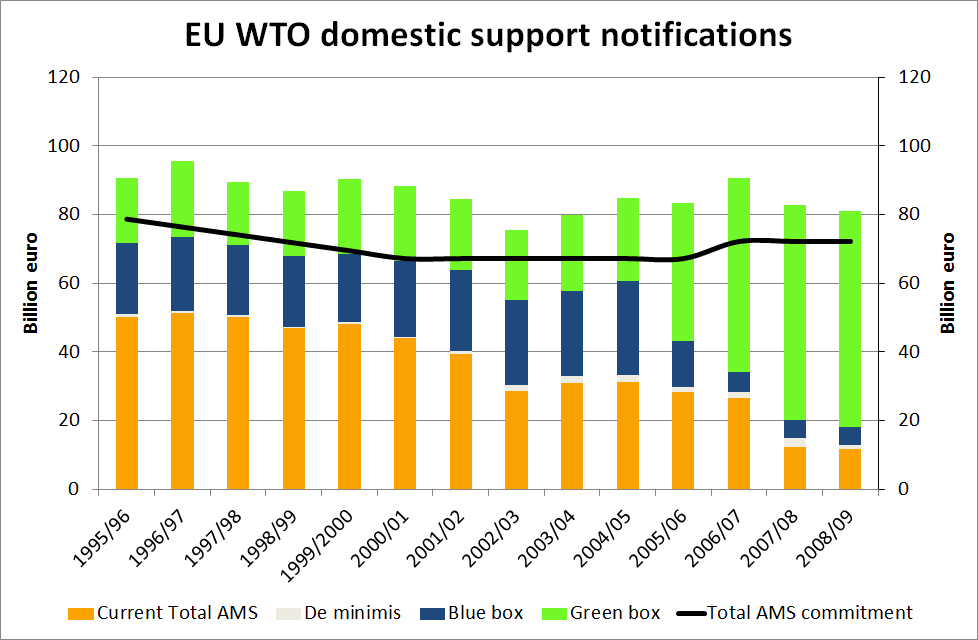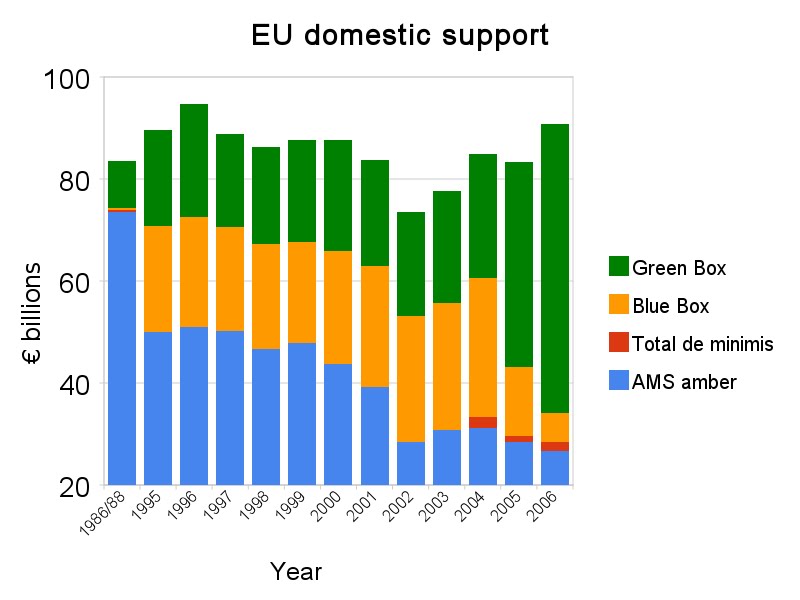The EU submitted its latest domestic support notification to the WTO for the 2015/16 marketing year on 23 August last. This notification is interesting because it covers the first full year of operation of the new CAP in 2015, as the new direct payments architecture was first implemented in that year. This post examines the trends in domestic support in this and recent notifications, and speculates on how the figures might be affected by the Commission’s legislative proposals for the CAP announced on 1 June last.
Trend in overall domestic support
The broad trends in domestic support provided to EU agriculture according to the WTO classification is shown in the Figure below.… Read the rest




